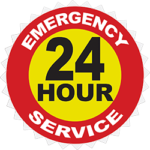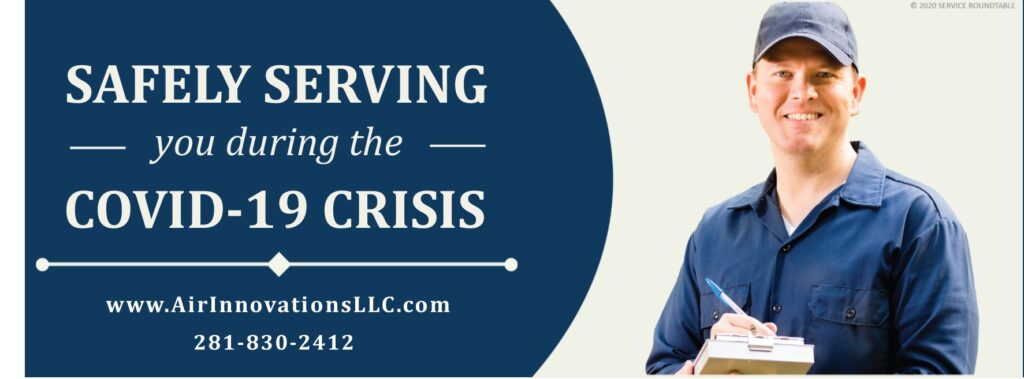If you’re from Houston, TX, you understand how erratic the weather can get. In this climate, we realize that the last thing you want to deal with is an untimely HVAC malfunction. With the summer months upon us, it is not unusual for your electricity bill to rise along with the mercury in the thermometer. At Air Innovations LLC, we promise to provide you with an HVAC system that will do its job keeping your home or business cool without breaking the bank. Interested? Keep reading to learn all the tips and tricks our seasoned professions advise to save you some significant money on your HVAC system.
Tip #1 – Don’t settle for just any contractor
One of the top ways to save money on your HVAC system is by
working with a trustworthy
HVAC contractor. Finding
a dependable contractor will ensure that you are receiving a superior
commitment to ethics, quality, and overall excellence, no matter what. Not only
will a reputable HVAC company charge you fairly for equipment and labor, but
since you can’t always plan for the unexpected, they will also offer unbeatable
flexible financing options to their customers. Saving money
anywhere you can on your HVAC system will add up in the long run, so make sure
you look out for all your options before buying. Some companies will even offer a certain
percentage off your service fees for doing something as simple as leaving
a review on their website. When working with a
company who cares, you won’t have to worry about getting taken advantage of or
paying a fortune. You will be receiving quality HVAC installations the first
time around, saving you money on HVAC repairs in the future.
Tip #2 – Upgrade your system
Upgrading to
a newer and higher efficiency HVAC system will help jump-start your savings by
significantly lowering your utility bills within the first few months. If your
current equipment is over ten years old, a new heating pump or air conditioning unit will probably be necessary.
To properly understand why HVAC modernizations are so beneficial, you can
reference the SEER or HSPF rating system outlined below.
- SEER is a maximum efficacy rating that
stands for Seasonal Energy Efficiency
Ratio and determines the annual energy consumption and efficiency of a
unit’s total cooling output in day-to-day use. Typically, the higher the SEER AC
rating, the less energy an HVAC will need to do its job efficiently, thus
saving you money. For example, if your current system has a SEER rating of 9 and you choose
to upgrade to a SEER rating of 13, your power consumption could be cut back by
about 30%. It may not sound substantial, but this small upgrade can save you
upwards of $300 annually depending on variables like electricity costs and
frequency of use. You can also take advantage of energy
savings calculators to help you compute the savings between your present unit and
a newer, more efficient one.
- HSPF is a heat pumps heating version
of SEER and stands for Heating Season
Performance Factor and is responsible for checking the heating efficiency
of a heat pump. This number represents the total heat output of a heat pump,
including the extra electric heat during the typical heating season in British
Thermal Units (BTUs), compared to the total electricity consumed in what hours
during the same period. For a heating pump to provide significant energy
efficiency and savings on monthly heating bills, we want a score of 8.2 HSPF or
higher.
Your licensed professional HVAC dealer at Air Innovations LLC in
Houston, TX, can assist you in determining which SEER AC or HSPF heat pump
ratings are the right fit for you and your budget.
Tip #3 – Government incentives and rebates
Yes, you read that right. Newer and higher rated HVAC units
often come with government and private sector incentives and rebates. Since
higher SEER and HSPF rated HVAC systems may cost twice as much as some of the
lower-rated models, incentives for air conditioning and heat pumps are commonly
tied to efficiency ratings and performance. Government agencies and power
companies encourage consumers to spend their money on higher efficiency
equipment as a means to reduce power consumption during the summer cooling
season. Making economically conscious choices when it comes to your home or
businesses HVAC system will not only have a positive impact on the environment,
but it will also have a positive impact on your wallet. These money-saving
options come in the form of tax credits, direct rebates, tax deductions, and
can even total out to more than a thousand dollars per system depending on
geographical location and equipment purchased. You can also search online for
specific rebates and incentive by using sites like:
- DSIRE USA
- Energy.gov
- Energy Star
These resources will provide you with searchable databases
that can quickly inform you of any incentives or rebates you might be able to
collect for you high-efficiency HVAC purchase.
Tip #4 – Don’t neglect regular maintenance
The easiest
and most effective way to save money on your HVAC’s energy consumption it to
regularly maintain your system. Over time, dust, debris, allergens, pollutants,
and various other small particles will accumulate in your HVAC filter as it
pulls in air. Though this is normal, overly clogged filters will inevitably
force your system to work harder for the same cooling results, costing you more
money. The good news is, HVAC filters are relatively inexpensive and super easy
to replace. Though it may seem trivial, the smaller costs related to HVAC
maintenance are what prevent the much higher costs associated with untreated
damage or premature system failure. Some other maintenance-musts to keep in
mind are:
- Cleaning the condensing unit –air
conditioners with outdoor condensing unit or heat pumps are prone to clogging
up with dirt, pollen, and other environmental debris. Once each season, it’s a
good idea to use a hose to spray down the outside out the unit gently.
- Inspect and clean up around outdoor
unit – remove any leaves or overgrown vegetation from around your unit to
ensure there is no interference with air flow.
- Check your evaporators coil’s
drainpipe and pan – Check your HVAC system’s drainpipe and try to clean out any
algae or mold that may be causing a blockage. An excellent way to do this is by
using a wet-dry vacuum or some bleach to clear any clogged areas.
- Don’t forget to schedule
regular maintenance services – We recommend having a licensed professional come out and perform
preventative services to your system at least once a year.
It is
recommended that you get your HVAC system inspected, cleaned, and serviced at
least once per year by a professional contractor to save money on energy costs
and prevent untimely equipment malfunctions.
Tip #5 – Check ductwork for air leaks and damages
Sometimes
even when it seems like you’re doing everything right regarding your HVAC
system, you may find out that your hard-earned money is unintentionally going
towards keeping your attic and crawl space comfortable. Not ideal. That’s why
it is crucial to make sure you get your duct system inspected by a qualified
HVAC contractor to see if poorly sealed or insulated ducts are contributing to
your climbing energy bill. Space heating and cooling account for nearly half of
your home’s total energy use, and ducts that leak heated air into unwanted
spaces can add hundreds of dollars to your heating and cooling bills annually. In
fact, the U.S. Department of Energy (DOE) concludes that the typical duct
system loses between 25% and 40% of its heating and cooling energy
due to improper sealing or a lack of insulation. The good news is, you can
reduce this loss by sealing, insulating, or merely upgrading your ducts,
which the DEO estimates would save the average household $160 on their total
heating and cooling bill. Some money-saving duct repairs you can carry out on
your own include:
- Checking for air leaks/holes in your
ducts by looking for sections that should be joined but have separated
- Sealing any duct gaps with
professional-grade mastic, butyl tape, foil tape, or other heat-approved tapes
(despite the name, no duct tape!), while sealing larger gap areas with web-type
drywall
- Make sure none of the ducts in your
crawlspace or attic are laying on the floor as a way to avoid any water or
rodent-causing damage
Additionally,
as your HVAC system works to keep you warm in the winter and cool in the
summer, the air traveling through the tucked away ducts can cause dust, dirt,
and grime buildup that can go completely unnoticed. If you see dark stains or
patches on your duct’s insulation, that is a sure indication that your ductwork
is not sealed correctly, and undoubtedly has an excess particle buildup. To fix
this problem, you will need to properly re-insulate the problem areas to ensure
maximum comfort and savings. With that being said, we understand that not
everyone was born a handy-(wo)man. That’s why Air Innovations LLC offers our
services all around the greater Houston area for anyone who may need a helping
hand.










